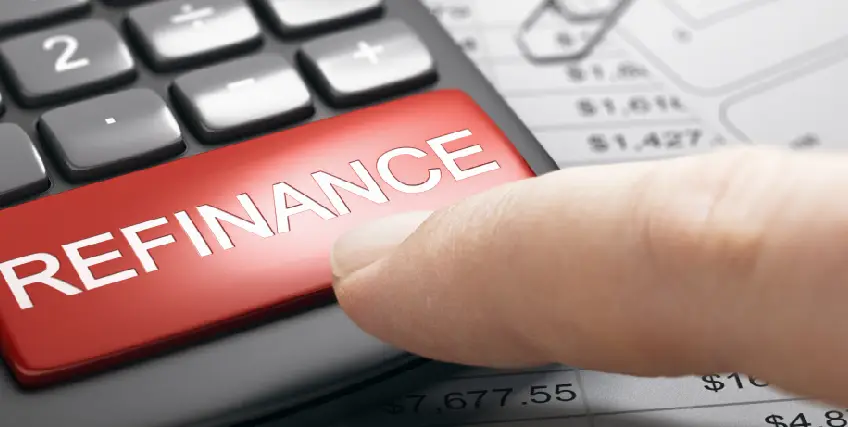Looking for Business Financing?
Apply now for flexible business financing. Biz2Credit offers term loans, revenue-based financing, lines of credit, and commercial real estate loans to qualified businesses.
Set up a Biz2Credit account and apply for business financing.
Key Takeaways
Startup business loans help new businesses access capital without having an operating track record.
- There are different types of business loans for small business startups available that respond differently to credit strength.
- Credit scores strongly influence loan approval decisions, interest rates, and loan amounts.
- Lenders rely on personal credit scores when business credit is not yet established for startup business loans.
Business owners with low credit scores have many practical startup business financing options to choose from.
Strategic planning, preparing credit, cash flow, and documentation improve loan approval chances for startup business owners.
Everyone dreamed of starting a business once in their life. But only some of them were able to accomplish their dreams. Whether it's starting a small ecommerce business, running a food truck, or operating a digital marketing agency, an entrepreneurial journey isn't that easy as it seems.
In the United States, starting a small business often begins with one of the most important critical challenges, which is funds. Because having substantial access to funds can shape how fast your idea becomes a real operation. Some business owners rely on personal savings to fund their business, while others look for business loans or other financing options to move onto this journey.
For new businesses, startup business loans provide early financial support. These small business loans help cover various business needs, including working capital, inventory purchases, equipment purchases, and initial operating costs. However, approval for these loans does not depend only on the strength of the idea, but also on other factors.
Since startups lack financial statements, steady cash flow, or a long business track record, lenders often focus on the founder's personal credit score for loan approval. This guide explains how lenders evaluate credit, how different startup loan options respond to credit strength, and what founders can do to improve approval outcomes.
What Are Startup Business Loans
Startup business loans are financing options designed for new businesses. These businesses usually have limited or no operating history. Entrepreneurs and new business owners can use startup loans to cover various business needs such as:
- Working capital
- Inventory purchases
- Equipment costs
- Initial operating expenses
- Emergency business costs
One of the most important things to keep in mind is that startups lack revenue consistency. This is why lenders assess borrowers here and not their businesses. They often look for factors like personal credit score, credit history, and financial behavior guide for loan approval decisions.
Types of Loan Options Used By Startup Businesses
Entrepreneurs and new business owners can choose from a wide range of loan options available today. But before choosing any of the options, it is important to understand the unique credit requirements that come with them.
SBA 7(a) Loans
SBA Microloan
Business Line of Credit
Equipment Financing
Short-Term Business Loans
SBA 7(a) loans are small business loans, partially backed by the U.S. Small Business Administration. For these loans, the SBA guarantees to reduce lender risk. The SBA 7(a) loan program is a type of SBA loan that supports eligible startups by offering larger loan amounts with longer repayment terms. However, lenders evaluate personal credit scores, business plans, financial projections, and cash flow assumptions for these startup SBA loans. Also, most of them might require a personal guarantee and sometimes a down payment.
The SBA Microloan program offers smaller loan amounts to new business owners. These loans are offered through nonprofit intermediaries that are approved by the SBA. Microloans usually support new businesses with limited capital needs. The funds from these SBA loans for startup businesses can be used for working capital, equipment costs, and inventory purchases. Since credit requirements are more flexible for new business owners, lenders do review creditworthiness.
A business line of credit is a flexible funding option offering quick access to funds up to a pre-determined credit limit. Small business owners can use this option to withdraw funds when they need and pay interest only on the amount used. A line of credit startup business loan option supports short-term cash flow gaps. They also work well for managing operating expenses. But credit scores do influence credit limits and interest rates for entrepreneurs.
Equipment financing option is a business loan tied to purchasing tools, tech, and machinery. New business owners can purchase their equipment with this startup business loan option and pay in easy monthly payments. Also, the equipment itself serves as collateral, reducing risk for lenders. Since collateral is tied here in the form of equipment, credit score requirements are often less strict.
Short-term business loans provide fast access to capital with smaller loan amounts. The repayment period for these loans is shorter compared to long-term loans. Short-term loans can be used to support urgent business needs such as inventory or temporary cash flow issues. However, credit requirements are more flexible here than long-term loans, interest rates are higher due to increased risk.
Eligibility Requirements for Startup Business Loans
New business owners can look at eligibility requirements when applying for startup business loans. This is because eligibility varies by lender and loan programs. Hence, some of the common factors that most lenders look for include:
- Personal credit score
- Credit history
- Financial projections
- Tax returns
- Financial statements (if available)
- Personal guarantee
Also, it is important to note that some SBA loan programs may also require a down payment. Moreover, lenders also pay close attention to the type of business and expected cash flow when new business owners apply for startup business loans.
How Credit Scores Affect Startup Business Loans
For a business loan, a credit score is a numerical measure of a borrower's creditworthiness. This figure reflects how responsibly a person has managed past debt. According to Experian, a credit score of 670 and above is generally considered a good credit score. Hence, credit scores reflect past financial behavior. And, lenders often use this score to predict repayment behavior.
For new business owners, higher credit scores can often lead to better interest rates and higher loan amounts. But lower credit scores might increase perceived risk and limit loan options.
New business owners who apply for startup business loans, personal credit scores matter more than usual. This is because credit scores often replace missing business performance data. Since new businesses lack financial history, lenders rely on the founder's personal credit score to assess risk.
How Lenders Use Credit Scores to Evaluate Startup Business Loans
Lenders usually review various metrics when approving startup business loans. They assess every minute detail in the credit reports. Thus, credit scores help lenders evaluate:
- Ability to manage business debt
- Likelihood of on-time monthly payments
- Overall creditworthiness
In short, lenders also analyze cash flow projections, debt service capacity, and financial statements (if available) along with credit scores. However, for SBA loan programs, lenders follow strict underwriting standards set by the U.S. Small Business Administration.
Minimum Credit Score Requirements for Startup Business Loans
New business owners when they apply for startup business loans, there is no single minimum credit score. A score of 670 or above is generally considered a good score for small business loans. But requirements for each loan type vary by lender and loan program.
Some of the general expectations include:
- SBA loans often prefer strong credit scores.
- SBA microloan programs allow more flexibility.
- Short-term loans accept moderate credit with higher costs.
According to the Federal Reserve reports, borrowers with strong credit receive better repayment terms. Also, other factors such as down payments and strong financial projections can offset lower scores.
Common Credit Score Challenges Founders Face
Many entrepreneurs in the U.S. face credit challenges early and startups often form before financial stability. Thus, new business owners can face some common challenges which include:
- Limited credit history
- High credit card balances
- Missed or late payments
- Errors on credit reports
- Mixing personal and business credit
Hence, all these above challenges reduce loan approval odds, but can be corrected with preparation.
What Founders Can Do to Improve Approval Chances for Startup Business Loans
Preparation improves outcomes significantly. Lenders value organization and consistency.
Founders should focus on:
- Reviewing credit reports regularly
- Correcting errors quickly
- Reducing revolving credit card balances
- Strengthening financial projections
- Organizing tax returns and financial statements
- Separating personal and business credit
Hence, a complete loan application builds lender confidence.
Startup Business Financing Options for Founders with Low Credit Scores
Low credit scores limit traditional options. Still, alternative financing remains available. These include:
Merchant Cash Advance
Invoice Factoring
Revenue-Based Financing
Crowdfunding
A merchant cash advance provides upfront capital in exchange for future sales. Repayment occurs through daily or weekly sales deductions. This option suits startups with consistent card transactions. Credit score requirements are lower, but costs are higher.
Invoice factoring allows startups to sell unpaid invoices for immediate cash. The lender advances a portion of the invoice value. Approval depends on customer reliability, not the founder's credit score. This option stabilizes cash flow.
Revenue-based financing provides capital in exchange for a percentage of future revenue. Repayments adjust with sales performance.
This structure avoids fixed monthly payments. It suits startups with predictable revenue streams.
Crowdfunding raises capital from supporters rather than lenders. Credit scores do not factor into approval. Success depends on marketing and audience engagement. This option works well for early-stage startups.
The Bottom Line
Startup business loans depend on preparation and trust. And credit scores play a central role in building that trust. For new businesses, personal credit fills the gap left by limited operating history. Hence, understanding how lenders evaluate credit allows founders to plan strategically.
If funding is part of your growth plan, credit readiness matters. Start preparing now to improve approval odds and secure the right financing for your startup business.
FAQs About Startup Business Loans
1. What is a startup business loan?
A startup business loan is a financing option designed for new businesses with little or no operating history. These loans help cover early expenses such as working capital, equipment, inventory, and initial operating costs.
2. Why do credit scores matter so much for startup business loans?
Credit scores matter because startups usually lack financial statements and a track record. Lenders rely on the founder's personal credit score to evaluate repayment risk and creditworthiness.
3. What credit score is needed for startup business loans?
There is no single minimum credit score. Requirements vary by lender and loan type. Higher credit scores generally improve approval chances, interest rates, and loan amounts.
4. Can I get a startup business loan with bad credit?
Startups with bad credit still have multiple financing options. Financing choices such as merchant cash advances, invoice factoring, revenue-based financing, and short-term business loans may be available.
5. How does a credit score affect interest rates on startup business loans?
Credit scores influence how risky a borrower appears to a lender. Stronger credit scores usually result in lower interest rates, while lower scores often lead to higher borrowing costs.




